Panel: Housing, Urban Development, and Displacement – Tim Thomas and Will von Geldern
When: Friday, October 3, 2025 (12:30 – 1:30PM)
Where: 360 Parrington Hall and on Zoom (register here)
We are looking forward to hosting Dr. Tim Thomas, Chief Research and Data Officer at the King County Regional Homelessness Authority (KCRHA) and professional researcher in the Department of Sociology at UC Berkeley, and Will von Geldern, PhD Candidate, Evans School of Public Policy & Governance, University of Washington, on Friday, October 3, 2025 in Parrington Hall 360 and on Zoom. This seminar is co-sponsored by the Population Health Initiative.
This panel discussion will feature two researchers focused on housing, urban development, and displacement. Dr. Tim Thomas will present on "The Housing Precarity Risk Model: Predicting Displacement and Eviction Risk in a Post-COVID U.S." Will von Geldern, will present on "Measuring Displacement: Using Mixed Methods to Understand Eviction Outcomes."
(read more)
|
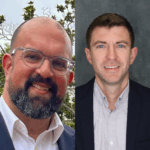 |
|
|
Raftery and Irons Publish Research on COVID Measures
Adhia, Richey, and Co-Authors Publish Research on Perceptions of Teen Dating Violence Laws
CSDE Affiliate Avanti Adhia (Child, Family, and Population Health Nursing; Epidemiology), CSDE Trainee Ann E. Richey (Epidemiology) and co-authors published a research article, titled “Implementation of Teen Dating Violence (TDV) Laws and Policies in High Schools: Staff and Student Perceptions,” in the Journal of Adolescent Health. The authors conducted semistructured interviews with school staff and students in states that require districts to develop written TDV policies and provide educational programs to explore their knowledge and experience. While written laws and policies are promising systems-level strategies to reduce TDV, further resources and attention devoted to implementation are critical to ensure TDV is addressed effectively within schools.
(read more)
|
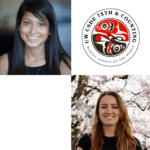 |
Wang Publishes Research on the Financial Health of Community Land Trusts
CSDE Affiliate Vince Wang (Real Estate) recently published an article titled, “Understanding the financial health of community land trusts in the United States,” in the Journal of Urban Affairs. Wang used Internal Revenue Service (IRS) data and survey responses and found that Community Land Trusts (CLTs) among the financially top-performing community-based development organizations in the US between 2012 and 2021. Performance of CLTs varied based on organizational characteristics such as the organization’s age, location, CLT type, and the presence of shared equity units.
(read more)
|
 |
Swanson Presents Recent Work on Human Extinction to FSCPE
CSDE External Affiliate David Swanson (UC Riverside) was invited to present research results to the Research Committee of the Federal-State Cooperative Program for Population Estimates & Projections (FSCPE) on September 16, 2025. The virtual presentation, titled “Human Extinction: A Probabilistic Demographic Perspective” drew on an Association of Population Centers (APC) working paper by Swanson and co-author Jeff Tayman. Swanson and Tayman estimate with 66% confidence intervals that by 2139 the world population will be between 1.55 billion and 1.81 billion, by 2239, it will be between 4.95 million and 5.84 million, and by 2339 there will be no humans.
(read more)
|
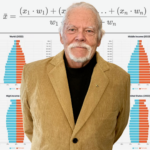 |
Curran Participates in Census Scientific Advisory Committee Despite Official Cancellation
CSDE Director Sara Curran recently participated in a public advisory panel to advise the Census Bureau on its plans for implementing differential privacy and its new Environmental Impacts Frame. The work was originally scheduled as part of the Census Scientific Advisory Committee, which the Trump administration disbanded this past spring. Members of the committee met anyway on Sept. 18 after reconstituting as an independent panel. You can watch the recorded session and read more here.
(read more)
|
 |
|
|
CSDE Science Core – Upcoming Workshops
|
Each quarter, CSDE offers 3-5 workshops on data sources, statistical and biomarker methodology, introductions to analysis programs, and more, all given by CSDE staff and faculty affiliates. These workshops can include hands-on training in novel methods and programming, lectures on innovative data sources, and discussions of important issues in research and data collection. Over the coming academic year, CSDE will offer a diverse and exciting set of workshops in a remote format.
Autumn Workshops
(read more)
|
 |
Call for Papers Available for PAA 2026 (10/05/25)
|
The PAA 2026 Annual Meeting has announced its Call for Papers. The deadline for submissions is October 5. Sessions will be in-person at the America’s Center in St. Louis, Missouri, May 6 – 9, 2026.
Please note a few important items:
- All accepted presenters will be required to register for the conference by February 4, 2026.
- Individuals can only serve as a presenting author twice on the program (but can have additional roles such as chair or discussant).
(read more)
|
 |
Students Conducting Population Research… Consider Submitting Your Research to PAA 2026
|
Attention Students, Trainees & Fellows! The Population Association of America (PAA) is a great opportunity to present your research. CSDE will help you prepare to submit your work for consideration. We will be facilitating our annual Extended Abstract Workshop ahead of the PAA 2026 submission deadline. This is a great opportunity to get feedback on your PAA abstract from CSDE staff scientists and faculty affiliates before you submit! You can sign up to participate here.
(read more)
|
 |
*New* Advocating For the Value of Your Favorite Federal Dataset
|
If you have a data set that is really important for you and has valuable impact more generally, then consider telling your story to Essential Data U.S. (https://essentialdata.us/). They are seeking to build a compendium of cases that convey compelling real-world examples of how federal data can benefit the American people and economy. Your story will help data users and advocates be more effective when engaging with lawmakers and federal agencies for continued resourcing of federal data programs.
(read more)
|
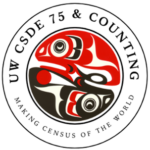 |
*New* UC Berkeley Webinar on Research and Teaching About Race, Ethnicity, and Migration in These Times (09/29/25)
|
UC Berkeley Sociology is hosting a seminar on September 29, from 2-3:30 pm PT in 402 Social Science Building and online on Zoom here. The recent authoritarian turn in American politics presents various challenges for scholars working in the US, including the repression of individual scholars, attacks on DEI, our research and higher education more generally.
(read more)
|
 |
*New* UW West Coast Poverty Center Seminar: Register for 1-Credit
|
Looking for a 1-credit course at UW for Autumn 2025?
The West Coast Poverty Center Seminar (SOC WL 556A) is a 1-credit course that meets on Zoom selected Thursdays from 9:30am-11:00am.
Students will consider the role of research in policy making and in social service programs, learn about locally relevant research, and complete a professional development activity.
(read more)
|
 |
CACHE – Virtual Center for Aging, Climate and Health Invites Participation and Contributions
Upcoming IAPHS Webinar: “Rethinking ‘Race’ to Reconstruct Research Practices: Introducing Population-Conscious Analysis” (10/06/25)
|
Race/ethnicity is commonly used as a predictor variable in biomedical research. This practice can perpetuate inequities when race/ethnicity and other social-identity categories are treated as fixed characteristics rather than as proxies for the social, environmental, and structural factors that produce unjust group differences in health outcomes. Join the Center and IAPHS for a webinar on Oct. 6 at 3 p.m. ET to learn about a novel research method which systematically assesses this critical factor.
(read more)
|
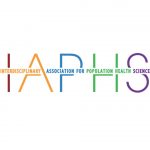 |
Corporate & Foundation Opportunities: Russell Sage Foundation Pipeline Grants Competition (10/1/2025)
|
Award amount: $50,000
Deadline: 10/1/2025
Description:
This initiative will support early-career scholars and promote diversity in the social sciences, including racial, ethnic, gender, disciplinary, institutional, and geographic diversity. Pipeline grantees are paired with mentors who offer advice on their projects and career development. The competition funds innovative research on economic mobility and access to opportunity in the United States.
(read more)
|
 |
LAPIS Seminar: The Challenges of Behavior Change – Per Nilsen (10/06/25)
|
Per Nilsen is a Professor of Social Medicine and Public Health at Linköping University, Sweden. An economist by training at Stockholm School of Economics, Sweden, Nilsen was responsible for building a research and educational program on implementation science at Linköping University, including a PhD course which is running annually since 2011. He takes particular interest in applying concepts and theories from beyond implementation science for improved understanding of the challenges involved in achieving behavior and practice change. Register for his talk on The Challenge of Behavior Change here.
(read more)
|
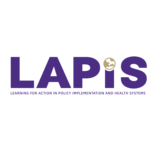 |
Register Now: CUGH Virtual Symposium on the Triple Environmental Crisis (10/14/25)
|
Addressing the Triple Environmental Crisis: A Way Forward
October 14th, 2025, 10:00am – 1:00pm PT / 1:00pm – 4:00pm ET
Join the Consortium of Universities for Global Health for this engaging symposium where they will exchange ideas and explore solutions to combat the pressing challenges of climate change, pollution, and biodiversity loss, which pose significant risks to our health and security. Register here and visit their website for more information.
(read more)
|
 |
Berlin Demography Days 2025: Demography and Democracy (10/27/25 – 10/28/25)
|
The electoral successes of anti-democratic movements cannot be explained solely by the demographic or socio-economic characteristics of individual groups. More decisive are local perceptions of problems and narratives of loss in the context of demographic change. These manifest in a perceived political overload, blame and the supposed failure of ‘established’ politics. Together with experts from academia, political foundations, and governments, we analyse these demographic trends and discuss practical solutions at the regional and local level. Register here.
(read more)
|
 |
CIFAR Azrieli Global Scholars Program – Canadian Institute for Advanced Research (11/05/25)
|
Award amount: $72,000
Deadline: 11/05/2025
Description:
The CIFAR Global Scholars Program offers early-career researchers the opportunity to develop and lead high-risk, high-reward interdisciplinary research, expand their professional networks and receive focused leadership training in their pivotal first years as independent investigators. These experiences accelerate the rise of research leaders who are positioned to drive new discoveries and open new fields of inquiry.
(read more)
|
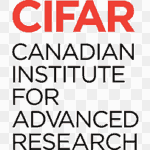 |
IPUMS: Caregiving Workshop at GSA (11/12/25)
|
Understanding and addressing the misalignment of care demands between an aging population and a shortage of healthcare workers in the US requires research-ready data to study caregiving. Join IPUMS and NDIRA the morning of Wednesday, November 12 for a GSA workshop: Population Data for Studying Formal and Informal Caregiving.
(read more)
|
 |
Center for Aging, Climate, and Health (CACHE) September 2025 Newsletter
|
CACHE facilitates research and fosters collaboration among a wide-range of researchers working at the nexus of aging, health and climate change through targeted interdisciplinary training, information sharing, and investments in research support. To view their September 2025 Newsletter that contains upcoming CACHE Seminars, Call for Papers, CACHE Seminar Recordings, and more, follow this link: CACHE September Newsletter.
(read more)
|
 |
Finding NASA’s Data From Socioeconomic Data and Applications Center (SEDAC) – Moved to Harvard
|
Data from the NASA Socioeconomic Data and Applications Center (SEDAC) along with other recent data releases are now available through a special CIESIN subcollection of the CAFE collection on the Harvard Dataverse. CAFE is the Research Coordinating Center for Health and Extreme Weather, based at Boston University School of Public Health and Harvard T.H. Chan School of Public Health. The spatial data produced or curated by SEDAC were specifically intended to facilitate integration with gridded Earth science data,
(read more)
|
 |
Latest Issue of Population and Development Review Published
Volunteer Researchers Needed for Community-Based Participatory Research
|
Dr. Melanie Martin is looking for a graduate student collaborator(s) to help with a year-long community-based participatory research project based in a local Lake City elementary school to study the impacts of culturally sustaining and asset-based pedagogical approaches in early education. Read more for brief description of the school and project aims.
(read more)
|
 |
IPUMS New Geographic Data
|
IPUMS IHGIS
IPUMS IHGIS released data tables and GIS boundary files for an extended time series of the Population and Housing Census for Ireland covering five censuses: 1966, 1971, 1979, 1981, and 1986. We also released data tables and boundary files for the Chad 2009, Jordan 2015, and Zambia 2000 Population and Housing Censuses.
IPUMS CPS
IPUMS CPS has created three new variables: PLACECENSUS and PLACEFFIPS report Census codes for central/principal cities in selected metropolitan areas,
(read more)
|
 |
Social Sciences Research Council: Economic Research Rescue Fund (Rolling)
|
Award amount: $25K to $250K, with most awards under $50K
Sponsor deadline: Rolling; funds are limited – grantseekers should apply as soon as possible
Program Description:
The National Science Foundation (NSF) is dramatically reducing its vital support for scientific research. Principal Investigators who were conducting or facilitating economic research under a grant terminated by NSF can now apply for rescue funds to mitigate disruptions of work that promises to provide significant societal benefits.
(read more)
|
 |
Data Resource: Dewey Data
|
Dewey Data is a research platform that provides access to third-party datasets across a variety of data categories including foot traffic, construction permits, healthcare, workforce, consumer behavior, and transportation.
University of Washington faculty, students, and researchers are eligible for access and must register an individual account. Follow this link to learn about how to register.
(read more)
|
 |
Sign Up to Join the Early Career Listserv!
|
We invite early career faculty affiliates to join our new mailing list, csde_earlycareer. Among other things, this is the way to find out info about our quarterly Early Career Affiliate happy hours, and you won’t want to miss those! These will be a great way to meet up with other junior scholars in a fun and casual atmosphere over snacks and drinks.
(read more)
|
 |
|
|

